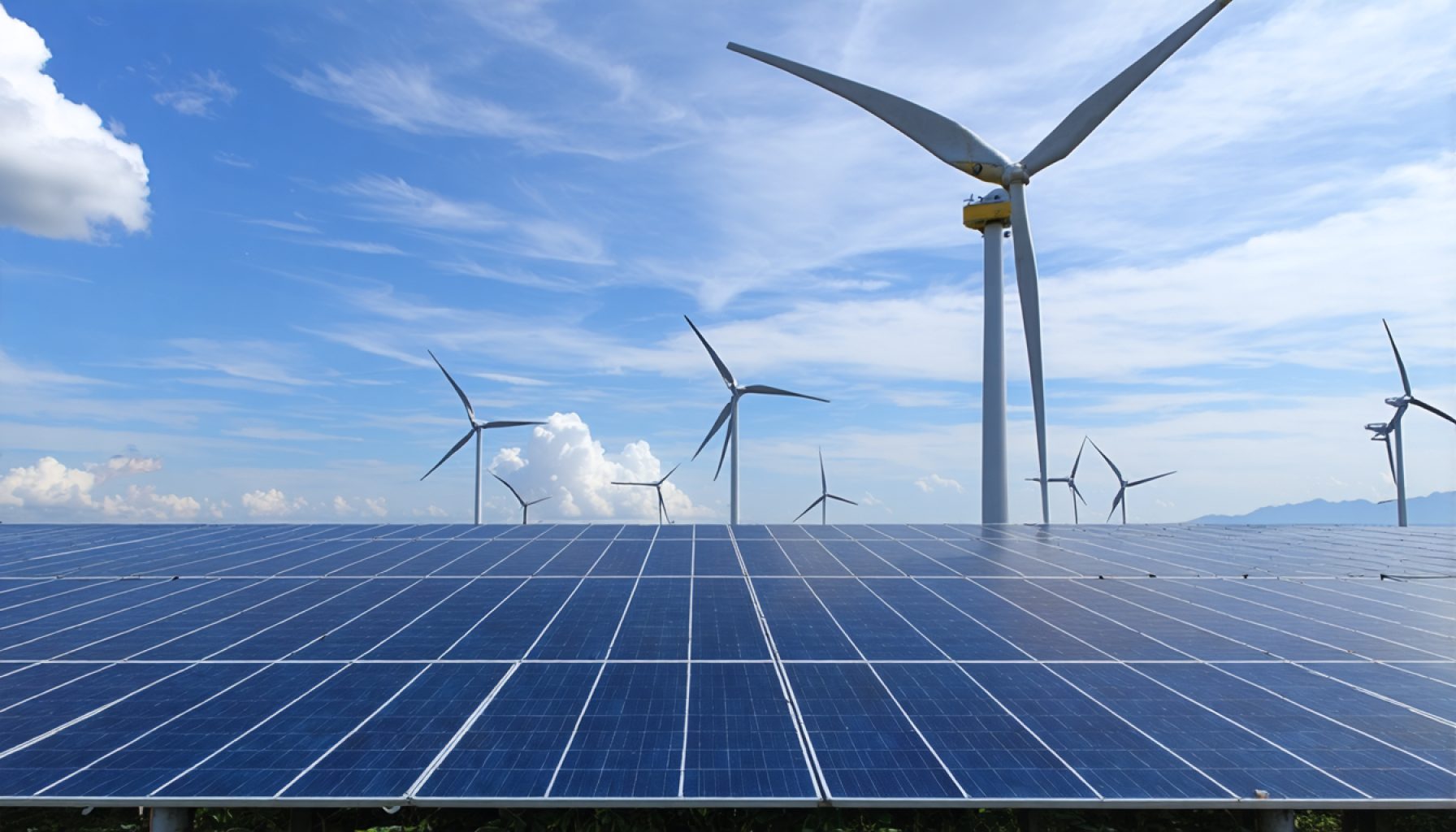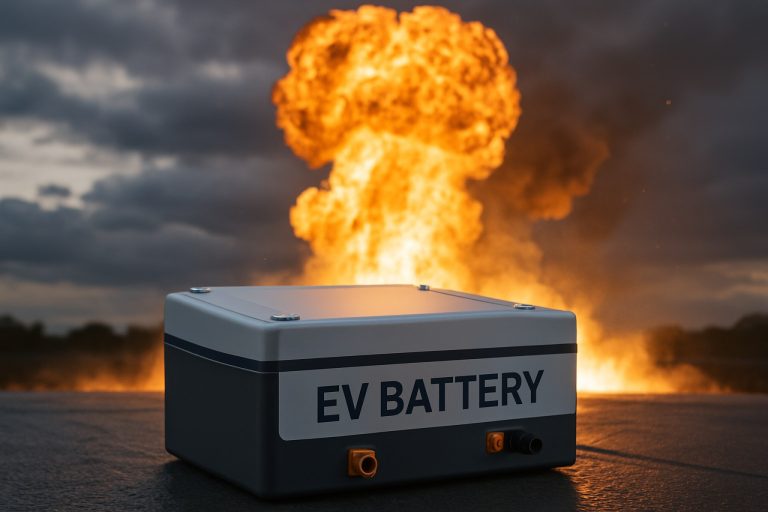
- LG Energy Solution halted its involvement in Indonesia’s 142 trillion rupiah electric vehicle (EV) battery project, highlighting the unpredictability of international partnerships in the green economy.
- Initially launched in 2020 as a key part of Indonesia’s electric aspirations, the Indonesia Grand Package project aimed to innovate across the battery supply chain.
- LG’s withdrawal was influenced by challenging market conditions and an unpredictable investment climate.
- Despite this withdrawal, LG continues its commitment to Indonesia’s EV future through HLI Green Power, in collaboration with Hyundai, inaugurating a plant producing 10 gigawatt-hours of battery cells annually.
- Indonesia balances local development goals with global corporate strategies, highlighting the importance of flexibility and adaptability in international investments.
- The unfolding narrative of the EV industry in Indonesia underscores the need for resilience and strategic foresight in fostering innovation.
Amidst the steel towers of Jakarta, where the cityscape reflects ambitions as vibrant as the markets, a silent retreat unfurls that speaks volumes of the intricate dance between global enterprise and local aspirations. LG Energy Solution, a titan in the electric vehicle battery sphere, recently halted their significantly hyped involvement in Indonesia’s expansive 142 trillion rupiah EV battery initiative. This decision reverberates through boardrooms and marketplaces, shedding light on the volatile nature of international partnerships in an evolving green economy.
Back in late 2020, when the world reeled from unprecedented challenges, LG saw Indonesia’s promising landscape as a fertile ground for electric futures. The Indonesia Grand Package (GP) project—a potent cocktail of innovation across the entire battery supply chain—was lauded as a linchpin for Indonesia’s electric aspirations. However, fast forward to today, and the script reads differently. Challenging market conditions coupled with an investment environment rife with unpredictability drove LG to recalibrate its course and opt for withdrawal.
Yet, this exit does not signal a closure. The company remains entrenched within Indonesia’s budding electric narrative through HLI Green Power—an ambitious collaboration spearheaded alongside Hyundai Motor Group. With its sights firmly set, HLI Green Power inaugurated the country’s inaugural battery cell plant capable of producing a staggering 10 gigawatt-hours of cells annually. This plant isn’t merely a factory; it’s a beacon of Indonesia’s pledge to transition into an energy independent titan in the electric vehicle landscape. Plans to expand this plant hint at a deeper, more resilient commitment to a sustainable future.
While LG’s retreat certainly raises eyebrows, it also invites reflection on the complex nature of fostering innovation amid fluctuating economic tides. For Indonesia, it is a reminder of the persistent balance required between local development goals and global corporate strategies. The narrative remains unwritten, colored with ambition and caution, as Indonesia charges forward, determined yet adaptable, in carving out its place in the electric revolution.
In this unfolding saga, the broader lesson emerges clear—true progress demands flexibility, and in the dynamic realm of international investments, adaptability is as crucial as vision.
Why Did LG Energy Solutions Pull Out of Indonesia’s Massive EV Battery Initiative?
Understanding Indonesia’s Electric Vehicle Ambitions
Indonesia has been striving to become a pivotal player in the global electric vehicle (EV) market. The nation has vast reserves of nickel—a critical component for EV batteries—which positions it strategically as an attractive partner for global companies seeking to expand in the EV market. The ambitious “Indonesia Grand Package” (GP) project aimed to transform the country into a critical player in the EV battery supply chain.
LG Energy Solution’s Withdrawal: A Strategic Move?
LG Energy Solution’s decision to withdraw from its grand plan in Indonesia reflects the broader challenges faced by companies navigating unpredictable investment environments. Key challenges contributing to LG’s decision include:
– Market Conditions and Uncertainty: Fluctuating economic conditions and unstable policy frameworks can deter investment.
– Supply Chain Challenges: The complexity and cost of building an integrated EV battery supply chain in a developing market can be daunting.
– Global Competition: Intense competition from other countries rapidly establishing EV industry capabilities.
However, LG’s continued commitment through HLI Green Power, an ongoing joint venture with Hyundai, showcases its strategic pivot rather than a complete withdrawal from Indonesia’s emerging market.
HLI Green Power: A Shining Beacon of Hope
Despite the withdrawal from the GP project, HLI Green Power’s establishment of Indonesia’s first battery cell plant is noteworthy. This plant, producing up to 10 gigawatt-hours annually, marks a major milestone in Indonesia’s journey to electrification and sustainability.
– Production Capacity: The plant’s significant capacity positions Indonesia as a future hub for EV battery manufacturing in Southeast Asia.
– Economic Impact: This venture aims to create jobs and enhance technological capabilities within the region.
Real-World Use Cases of the Plant
– Local OEMs: The plant supplies batteries to local automotive manufacturers, supporting Indonesia’s domestic EV industry.
– Export Opportunities: Beyond domestic consumption, there’s potential for exporting batteries to other Southeast Asian countries, tapping into regional markets.
Challenges and Limitations
– Infrastructure and Skills: Developing the necessary infrastructure and skilled workforce are challenges Indonesia must address to fully leverage this opportunity.
– Regulatory Environment: Streamlining regulatory frameworks is essential to attract and sustain foreign investments.
Industry Trends and Future Outlook
– Global EV Demand Growth: With global demand for EVs growing, Indonesia’s strategic investments symbolize potential future gains.
– Sustainability Focus: The international shift towards sustainable energy solutions makes Indonesia’s endeavors increasingly relevant.
Recommendations for Indonesia
1. Enhancing Policy Stability: Ensuring conducive and consistent policies will be key to attracting and retaining foreign investments.
2. Investing in Education and Training: Building a skilled workforce is critical for the sustainable success of the EV industry.
3. Strengthening Infrastructure: Continuous improvements in infrastructure will facilitate smoother integration into the global supply chain.
Quick Tips for EV Enthusiasts and Policymakers
– Monitor Policy Changes: Stay informed on shifting policies affecting EV investments in Indonesia.
– Explore Partnerships: Consider strategic partnerships similar to HLI Green Power for shared risk and expertise.
– Focus on Sustainability: Align EV production with sustainable practices to meet global environmental standards.
Indonesia’s ongoing efforts portray a nation determined to carve out its significant role in the electric revolution despite challenges. The intricate balance of ambition, adaptability, and strategic planning will determine its future success in the electric vehicle battery market.



